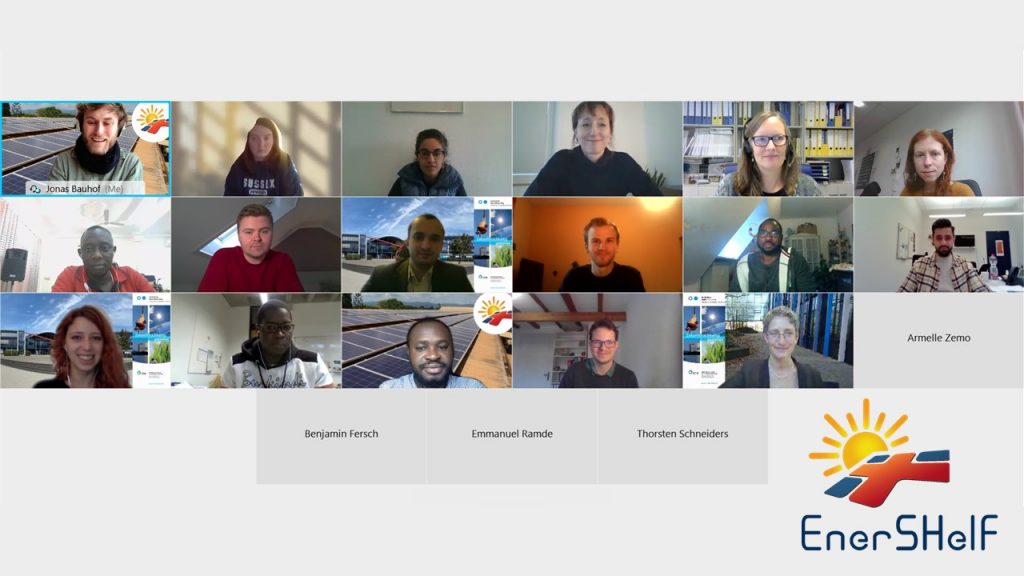
Report by Jonas Bauhof
With the continuous travel restrictions due to the COVID-19 pandemic, the EnerSHelF project team was unable to meet physically during the past months. Accordingly, this year’s annual meeting of all work packages (WPs) took place online. With researchers and project partners from both Ghana and Germany, the meeting was packed with presentations and thriving discussions on recent progress being made across the individual work packages.
The results are as diverse as are the different disciplines involved. Within WP1, a comprehensive literature review of the political economy in Ghana considering the nexus of renewable energy and health facilities is about to be completed. Recently, WP2 managed to instal measurement equipment and PV systems at one pilot site. In WP3, the different sub-WPs developed load models and an installation tutorial for the measurement devices that was used by local partners. Furthermore, they collected blackout and load data from Ghanaian hospitals and set together high-resolution energy meteorological forecasts for the project sites. These forecasts are backed with data collected by newly installed automatic weather stations at all three field sites. Another milestone was the development of an assistance tool for the process of planning and implementing micro grid systems for Ghanaian hospitals as well as the identification of the geographical distribution of energy production, consumption, and infrastructure through GIS data analysis.
A key objective of the meeting was the knowledge exchange among all WPs to find and create synergies and to discuss preliminary results. The fruitful debates proved the increment value of these cross-disciplinary exchange as the different perspectives lead to a holistic project approach. To foster this exchange, individual interviews with researchers and partners were conducted by one of the scholars in WP4 to pinpoint challenges regarding interdisciplinary work but also the advantages it encompasses. On the second day of the meeting, these perspectives have been put into practice by multiple cross-WPs sessions. In the upcoming year, the EnerSHelF team aims to deepen the interdisciplinary exchange through monthly seminars.
Despite the challenges regarding the installation of equipment, collecting data, and conducting interviews in Ghana, the range of steps undertaken in the previous months allows for a promising outlook for the upcoming year 2021.